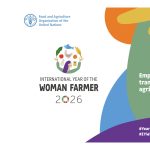For outstanding contribution to the environment
WBB Trust has won the “National Environment Award-2024”
For its outstanding contribution to environmental conservation and development, Work for a Better Bangladesh (WBB) Trust has won the “National Environment Award 2024” at the institutional level in the environmental education and awareness category. Since 1998, the organization has been conducting research, advocacy, networking, capacity-building programs, and increasing public awareness to protect the environment. In recognition of its extraordinary
contribution to the expansion and promotion of environmental education, WBB Trust has won the national award.
The National Environment Award is the most prestigious environmental award in Bangladesh. It is given to individuals and institutions for their significant contributions to environmental conservation, pollution control, education, awareness, research, and innovation.
Director of the organization, Gaous Pearee, on behalf of WBB Trust, received the award from Honorable Advisor to the Ministry of Environment, Forest and Climate Change Syeda Rizwana Hasan, at an event, held at the Bangladesh-China Friendship Conference Center in Sher-e-Bangla Nagar, Dhaka. Honorable Chief Advisor to the Government of the People’s Republic of Bangladesh Dr. Muhammad Yunus was present as the chief guest at the event.
Work for a Better Bangladesh Trust conducts research, advocacy, networking, capacity building programs, and public awareness activities to protect public health and environment. The notable activities of WBB Trust, with a focus on the environment, include measuring noise levels at various important locations in Dhaka city, identifying and controlling sources of noise pollution; controlling private cars to reduce carbon emissions and noise pollution and creating a walking and cycling-friendly environment; ensuring availability of safe food and encouraging good agricultural practices (GAP) by establishing neighborhood farmers’ markets; tobacco control for public health, environment and economic security; encouraging environmental protection through urban gardening in cities; biodiversity conservation and water body conservation to reduce the impact of climate change; sensitizing on prioritizing playgrounds, parks, open spaces and public spaces in urban development plans; plastic and polythene control; protecting water rights and creating neighborhood-based playing and socialization opportunities.






